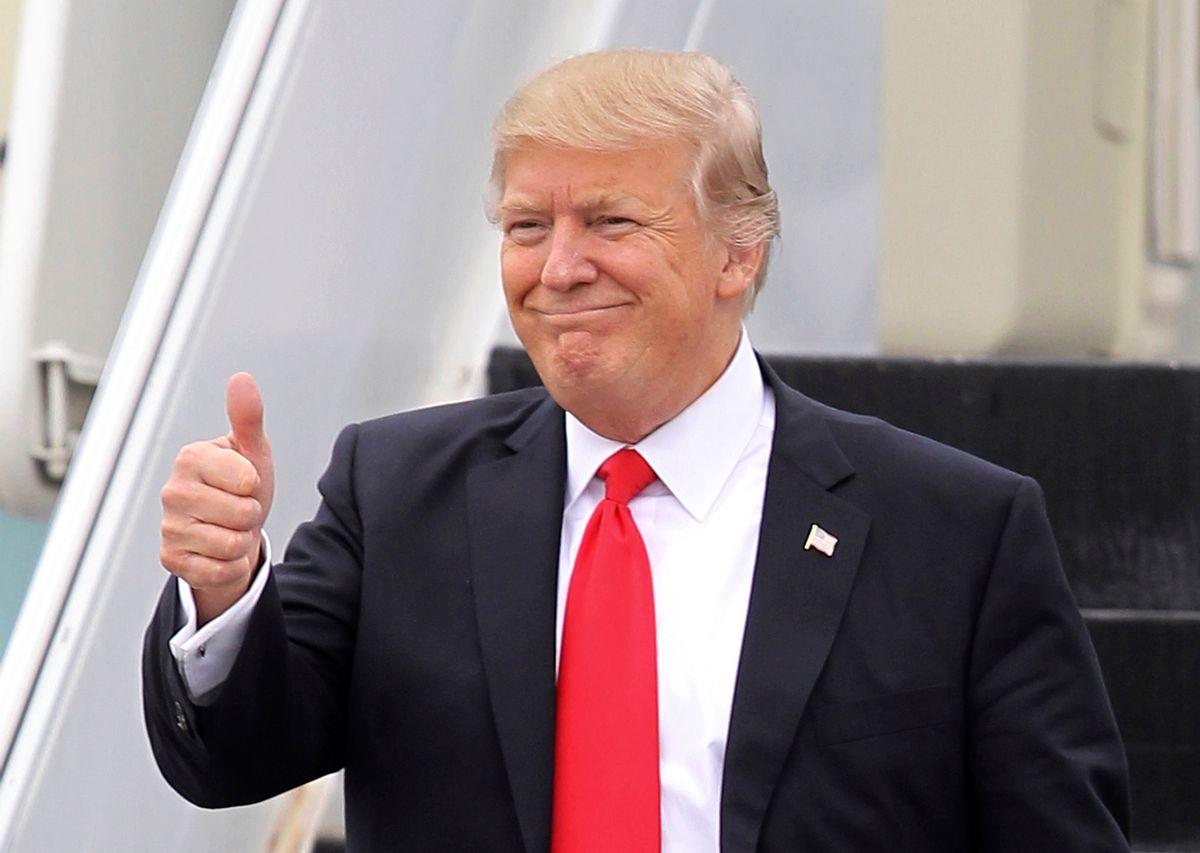In an attempt to make sense of President Donald Trump's decision to impose new tariffs on steel and aluminum, Peter Navarro, the director of the White House National Trade Council, appeared on multiple Sunday morning news shows.
Navarro made it clear that no countries would be exempt from the new tariffs, which include a 25 percent increase on steel products and 10 percent increase on aluminum. However, he suggested a process would be put in place for some exceptions to potentially be made.
"There's a difference between exemptions and country exclusions," Navarro said on CNN Sunday morning. "There will be an exemption procedure for particular cases where we need to have exemptions so that business can move forward, but at this point in time, there will be no country exclusions."
Navarro staunchly defended Trump's decision and explained that exemptions would be a "slippery slope" to go down.
"He made the decision to go with 25% tariffs on steel, 10% on aluminum across the board with no country exclusions and that's the way to do it, I believe, because simply that, for example, 10% tariff on aluminum, as soon as you start exempting countries you have to raise the tariffs on everybody else," he explained. "As soon as you exempt one country, then you have to exempt another country and so it's a slippery slope."
"The best-case scenario is the world wakes up to the fact that we're not going to take it anymore," Navarro added. "We want fair and reciprocal trade, and the World Trade Organization needs to adapt accordingly."
He also went on to say that the president could sign the new tariffs as quickly as the end of next week.
"So, the schedule is these are going through legal review, Office of Legal Counsel for form and legality. We expect probably by the end of the week these will be signed," Navarro said on "Face the Nation."
Along with Navarro, Commerce Secretary Wilbur Ross also appeared on news shows and said he had no reason to believe Trump's tariffs would exclude U.S. allies such as Japan, South Korea, the European Union or Canada.
"Whatever his final decision is, is what will happen," Ross said of the president on NBC's "Meet the Press."
He added, "If he says something different, it'll be something different. I have no reason to think he's going to change."
When pressed on how the world may react to the tariffs, Ross didn't seem to be worried one bit. "Retaliation isn't going to change the price of a can of beer. It isn't going to change the price of a car. It's just not going to. It can't," he said. However, the European Union has already threatened to retaliate, and would slap tariffs on products such as Harley-Davidson motorcycles, Kentucky bourbon and bluejeans.
All told, the E.U. "has threatened to retaliate on 2.8 billion euros worth of American exports," Politico reported.
Chinese officials have said, "China does not want a trade war with the US ... [But] we will not sit idly by and will take necessary measures if the US hurts China’s interests," according to Axios.
The defense of Trump's new tariffs came after the president made the surprise announcement last Thursday, which shocked the stock market and has even been criticized by conservatives, as Salon has previously reported. Critics have also feared Trump's decision could ignite so-called trade wars, and continue to increase global tensions.
Instead, Trump has said "trade wars are good."
Nonetheless, that criticism continued into Sunday, as Sen. Lindsey Graham, R-S.C. flatly said of the president's decision, "You're letting China off the hook. You're punishing the American consumer and our allies."
He continued, "You're making a huge mistake here. Go after China, not the rest of the world."



Shares